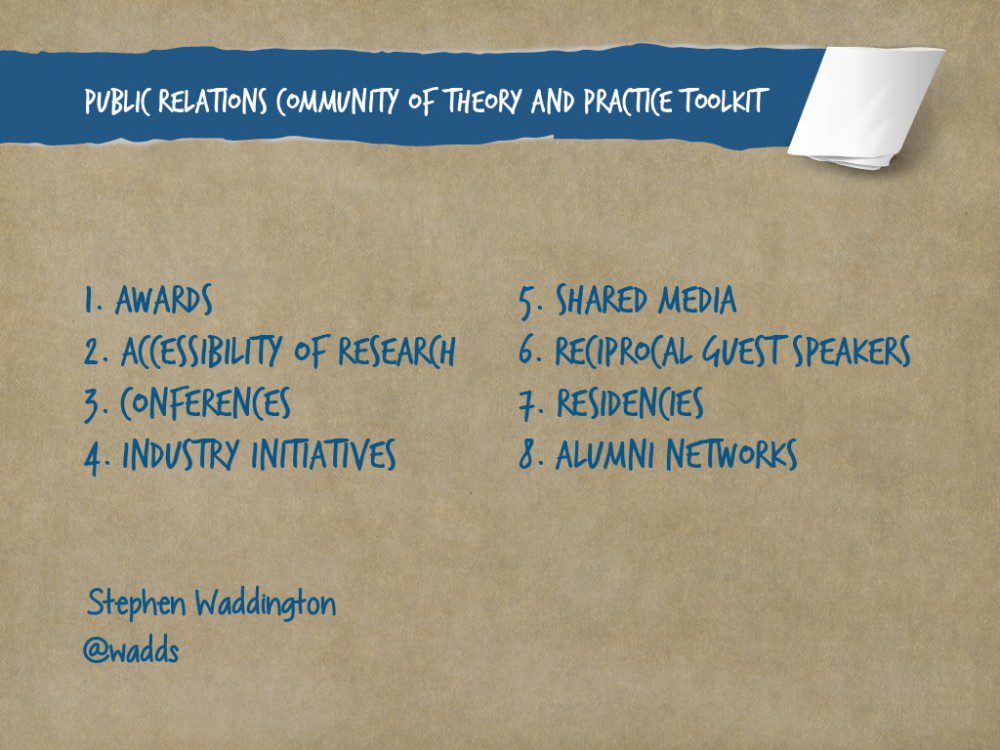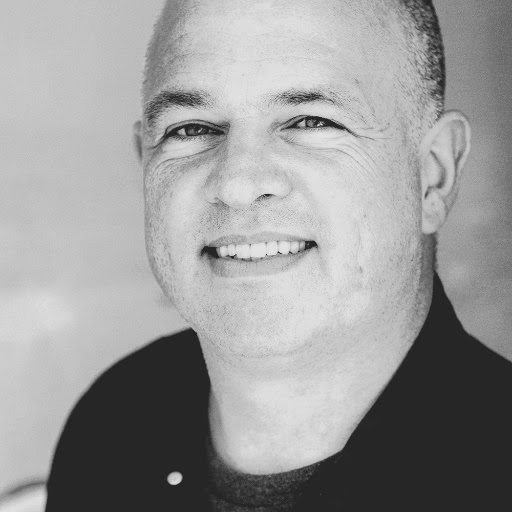
A workshop at BledCom has seen the publication of a toolkit aimed at improving cooperation between theory and practice in public relations. BledCom is an international public relations research symposium that takes place in Bled, Slovenia each year in July.
There are eight areas in which academics, scholars and practitioners could work better together to share knowledge and advance the public relations profession. With the exception of the opportunity for joint media, we’ve singled out these suggestions as practical no cost or low-cost practical nudges.

#1 Awards
Invite a mix of practitioners and scholars to participate as judges on industry award schemes. Add reciprocal categories that recognise excellence in research and practice.
#2 Accessibility of research
Open source publication of a single-page summary of academic research papers for practice to improve knowledge exchange. Google Scholar is useful for sign-posting original work.
#3 Conferences
Promote a greater diversity of academics and conference attending and speaking at industry events. BledCom is a good example of the benefit of this cooperation.
#4 Industry initiatives
Improve the representation of academic and practitioner interests in industry associations and initiatives. The Barcelona Principles and Global Alliance Global Capabilities Framework both worked on this basis.
#5 Media: HBR for PR
There’s a clear opportunity for a HBR-style publication for public relations. Communication for Leaders (Norway) and Communicatie NU (Netherlands) are both good examples. Funding is a challenge.
#6 Reciprocal guest speakers
Practitioners speaking on university courses; and academics speaking at agency and community team meetings. There are lots of examples of this happening from practice-to-university at an informal local level.
#7 Residencies
A scholar or practitioner in residence would be good way to develop a guest speaker relationship, and provide a route for sharing knowledge and influencing research topics.
#8 Alumni networks
University students graduating into practice provide a potentially strong connection between theory and practice. Motivated scholars maintain relationships via a shared form of media such as a Facebook or LinkedIn group.
PR is practical. We should learn from the body of knowledge that academic colleagues are investigating and apply it to our day jobs.
Academic colleagues are enabling greater understanding in every area of practice. Meanwhile practitioners challenged by the pace of innovation are reaching out to theory to help make sense of the changes in practice.
A close working relationship between academia and practice is a hallmark of any professional discipline – enhancing real-world practice with research, reflection and theory.
In public relations this relationship is limited, and without the historical perspective and insight provided for by academics, practitioners lack rigor and are limited to trading in simple crafts and tactics.
As a business in the midst of rapid fundamental change, bringing these two communities closer together will be crucial to us realizing our future potential.
Next steps
I plan to focus my personal efforts on the opportunity for shared media, and my relationship with Newcastle University. I’m not alone. Other workshop participants have stepped up to the opportunity.
Jon White, is a research fellow with the IPR Behavioral Insights Research Center, will be working in the coming year to make the findings of the behavioral sciences more accessible to practitioners. A first opportunity to do this will be at the Institute’s London Research Seminar, September 10. You can reach Jon at drjonwhite@gmail.com.
Kevin Ruck is exploring ways of bringing academics and practitioners together via Unconferences or round tables events. You can reach Kevin at kevin.ruck@pracademy.co.uk.
Sarah Hall is continuing to develop the #FuturePRoof community that she developed last year to explore the future of practice. She is seeking to include more academic contributions in a second edition. You can reach Sarah at sarah@sarahhallconsulting.co.uk.
I hope that the outcomes from this project inspire you to consider how you might help tackle this issue.
You can read the full report from BledCom and further information about the project on my website.
 Stephen Waddington is Partner and Chief Engagement Officer at Ketchum helping clients and colleagues to do the best job possible engaging with the public. He is Visiting Professor in Practice at the Newcastle University supporting the university and students through teaching and mentoring. Follow him on Twitter @wadds.
Stephen Waddington is Partner and Chief Engagement Officer at Ketchum helping clients and colleagues to do the best job possible engaging with the public. He is Visiting Professor in Practice at the Newcastle University supporting the university and students through teaching and mentoring. Follow him on Twitter @wadds.



